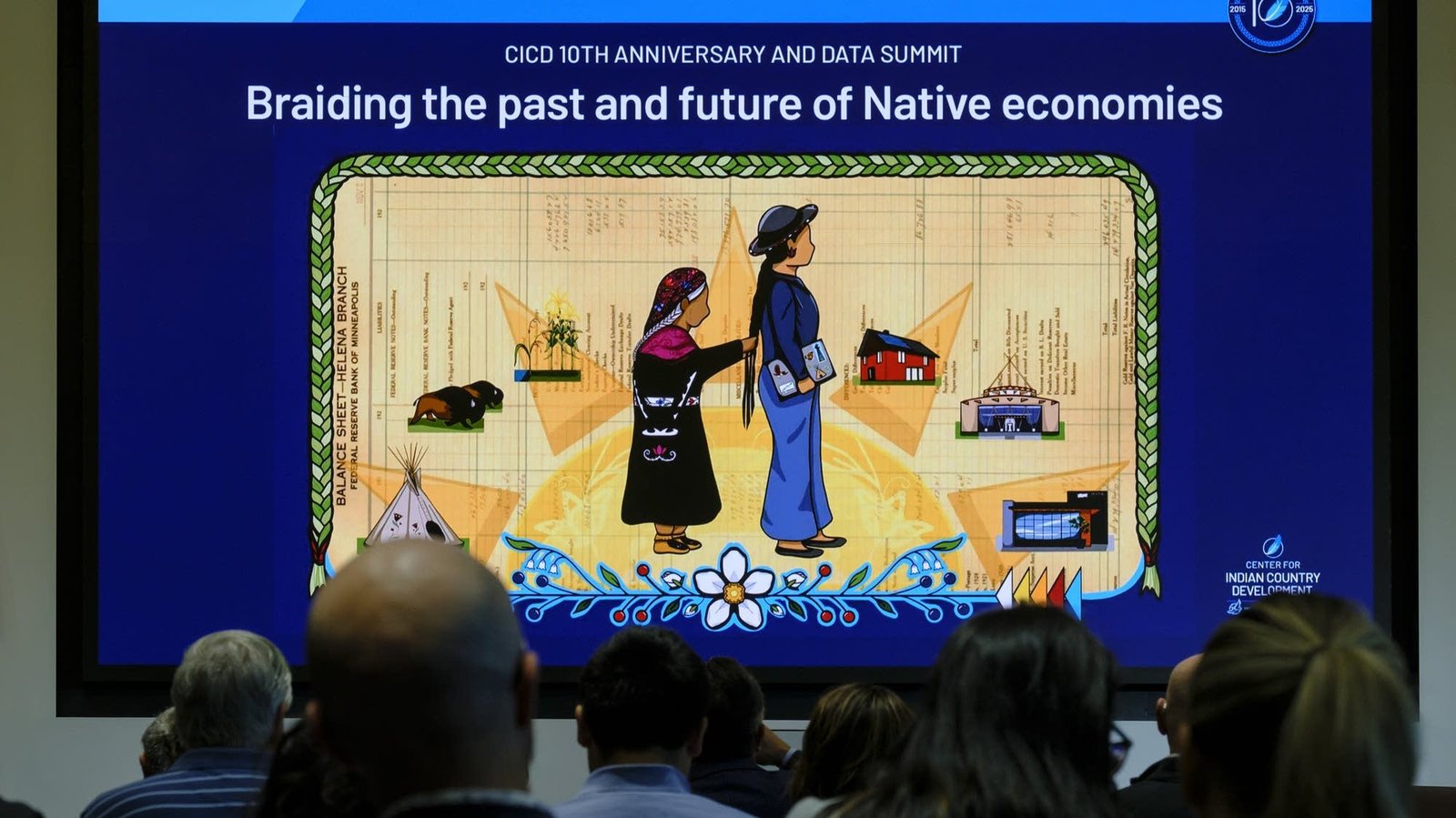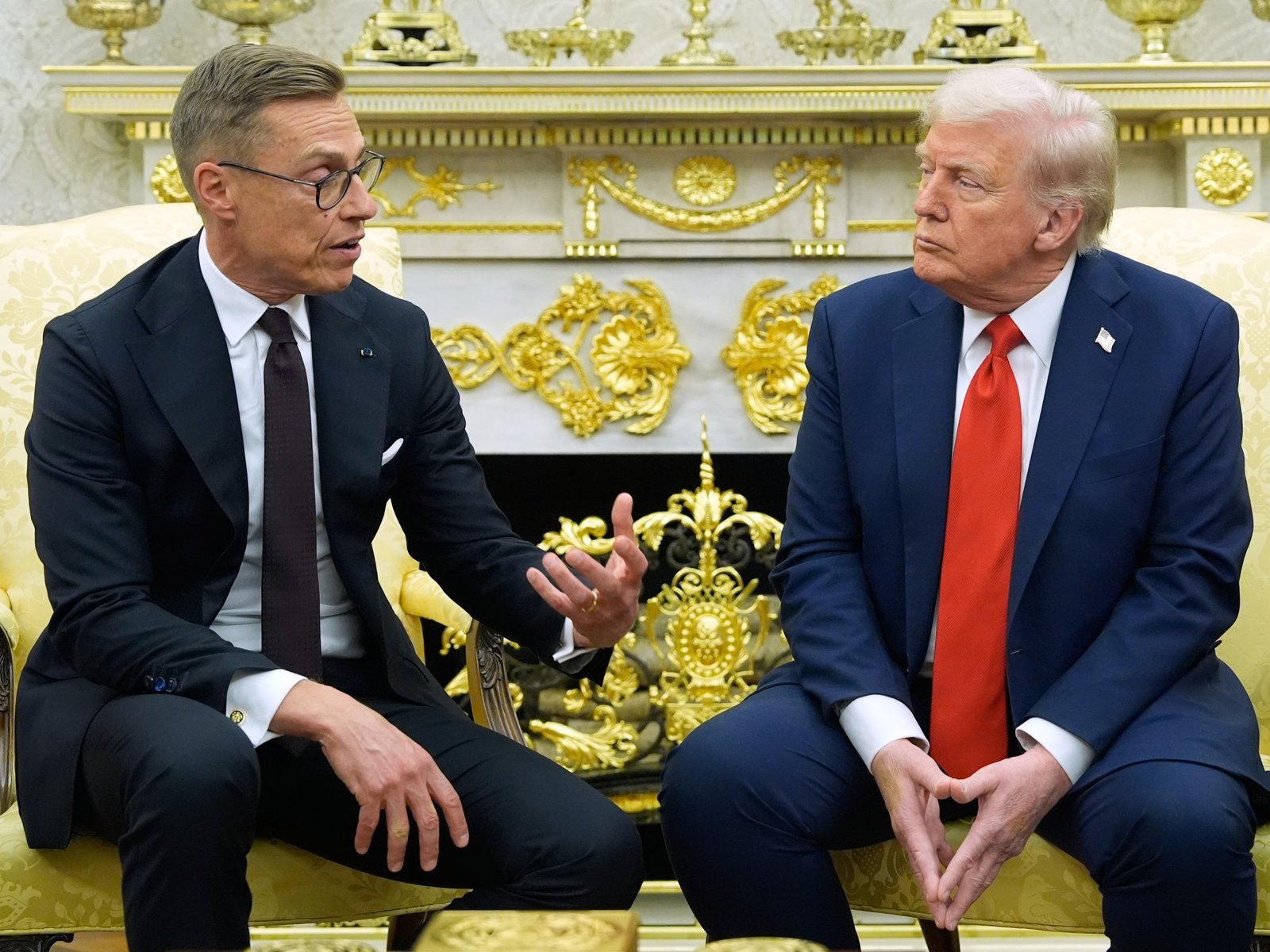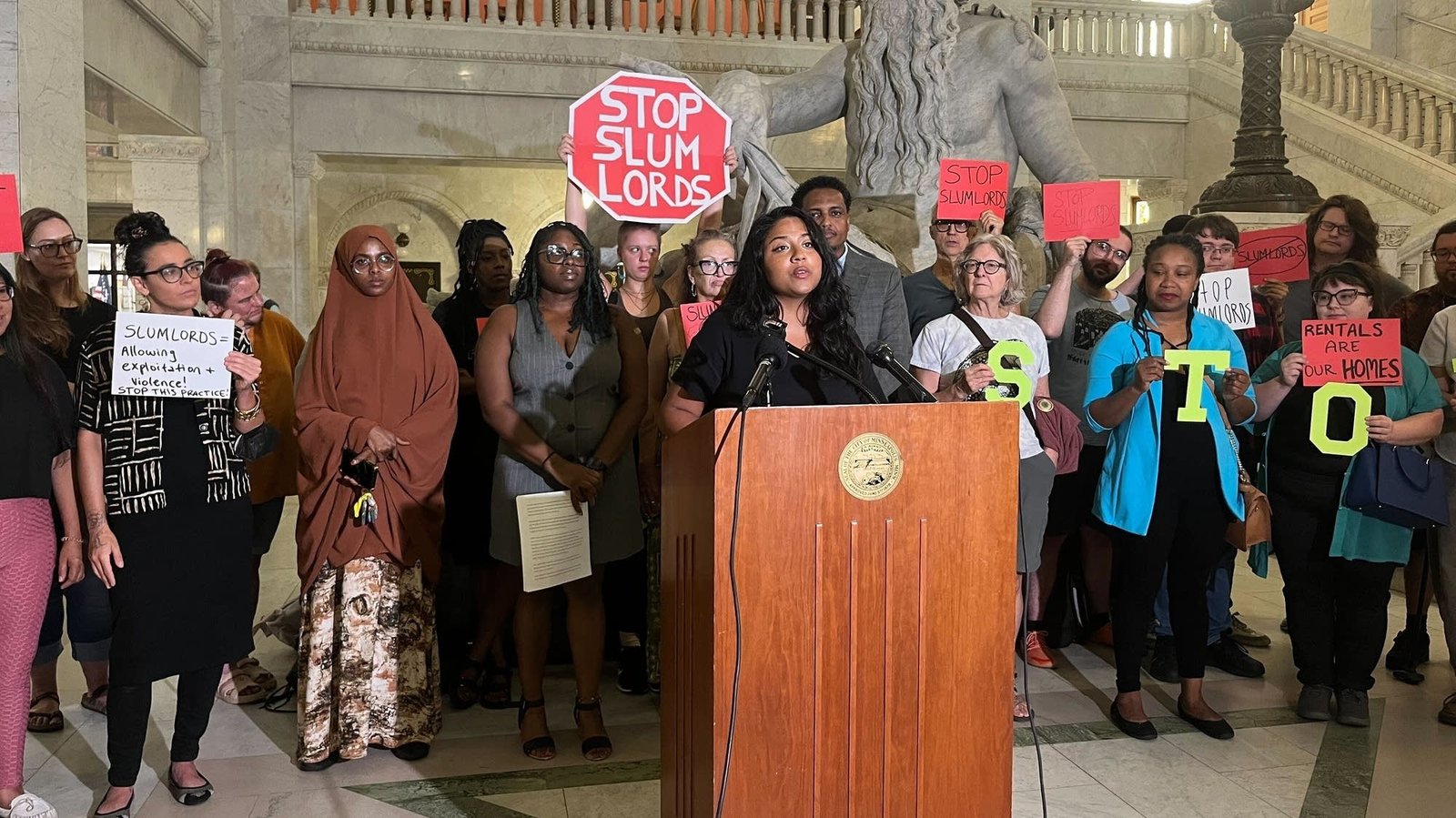Tribal economic development leaders convened Wednesday and Thursday at the Federal Reserve Bank of Minneapolis for a gathering aimed at supporting tribal economies.
Approximately 200 tribal leaders from across the country attended the Center for Indian Country Development’s 10th Anniversary and Data Summit. Several hundred others joined the conference remotely.
The flags of 44 tribal nations located across the United States greeted conference registrants inside the bank’s lobby. The Minneapolis Fed’s Center for Indian Country Development — known as the CICD — works with tribal nations across the United States.
The two-day event is part of the center's work with tribes and economic research. The conference focuses on addressing gaps in data to support tribal economies.
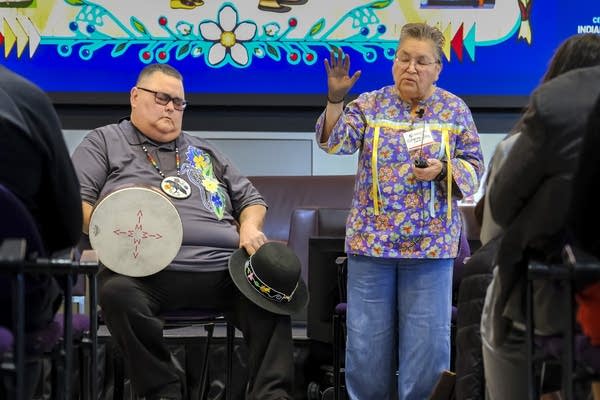
The Minneapolis Fed released its survey of Native nations, a data set intended to support tribal nations and their businesses by addressing persistent data gaps.
In an interview with MPR News, Casey Lozar, director of the Center for Indian Country Development, described the initiative as one that aims to equip tribal leaders and tribal communities with data so that they might gain insight into their tribal treasuries in the context of other governments and in the context of other tribes.
“It's a first of its kind initiative that is available to tribes to not only understand internally their financials but also understand and be able to share the story of their economic contributions across a wide variety of different economies,” Lozar said.
The survey was released Thursday at the conference.
President and CEO of the Minneapolis Fed Neel Kashkari spoke during the opening of the conference Wednesday.
Kashkari said the Fed’s mission of growing the U.S. economy and creating a stable financial system extends to tribal nations.
“Tribal economies are a big part of our country and a big part of region, so it’s core to us to fulfilling our congressional charge that we make sure we reduce barriers where we can provide pathways for Native members to participate in our economy,” Kashkari said.
Kashkari also hosted Sen. Tina Smith for a virtual fireside chat about Smith’s work with tribal nations throughout the state.
During the conversation, Smith reflected on her time serving on the Senate Indian Affairs Committee as leaders in Washington remain sharply divided while the federal government remains shutdown.
“One of the most rewarding things about being a senator working on Native issues is that it has traditionally been quite bipartisan,” said Smith. “So, that means that there's a kind of a deference to the local.”
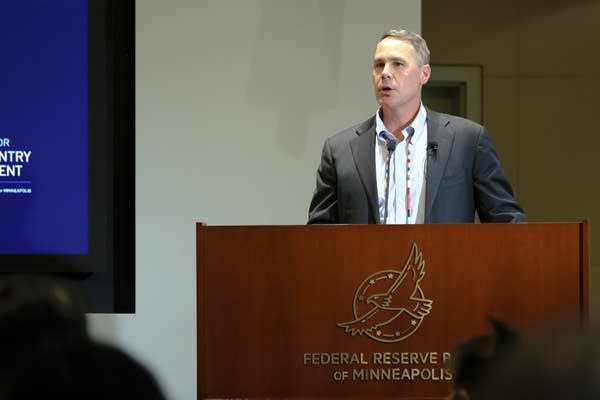
Lozar described what is sometimes termed “data sovereignty” as an offshoot of tribal sovereignty, the idea that tribes have a right to self-governance and self-determination. The Center for Indian Country Development has also created a set of principles for gathering data in partnership with tribal governments and tribal business enterprises.
“One of the most important principles we live by is that when we're handling tribal data and analyzing tribal data, that we do no harm,” Lozar said.
The conference convened a series of panels directed at data analysis in support of tribal economies.
Dawson Her Many Horses is a banker at Wells Fargo Bank and a member of the CICD leadership council. He spoke on a panel Wednesday afternoon and pointed to a data set recently collected by the National Indian Gaming Commission, an intertribal trade group for federally recognized Native American tribes who advocate for tribal gaming.
“This data is powerful,” said Her Many Horses. “It reframes the narrative, or can refrain the narrative about tribes, right? And change the narrative from tribes always being poor to tribes being significant contributors to their economy. It also just reframed the risk.”
The National Indian Gaming Commission’s recent study found that gross revenue from tribal gaming reached almost $44 billion nationally in 2024.
Her Many Horses said improved tribal data collection in other sectors could have a similar effect.
“I think the more data that we can get, I think is even better for investors and others who want to put some money into Indian Country.”

